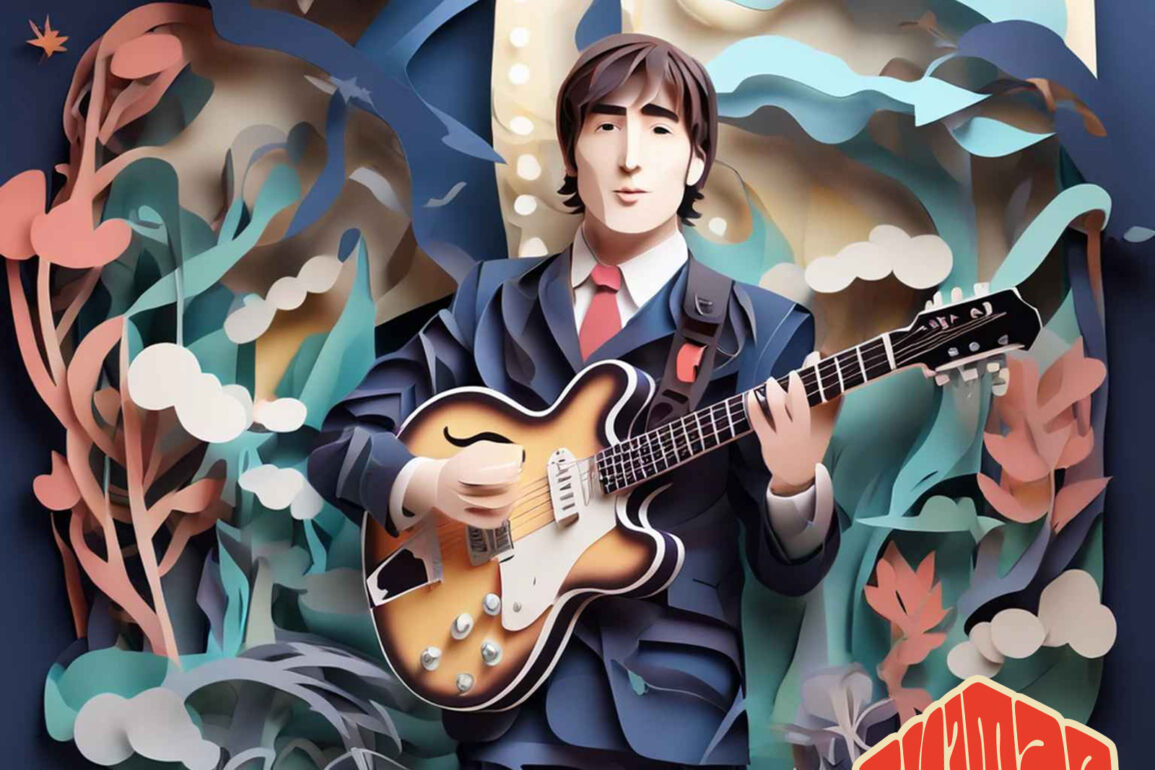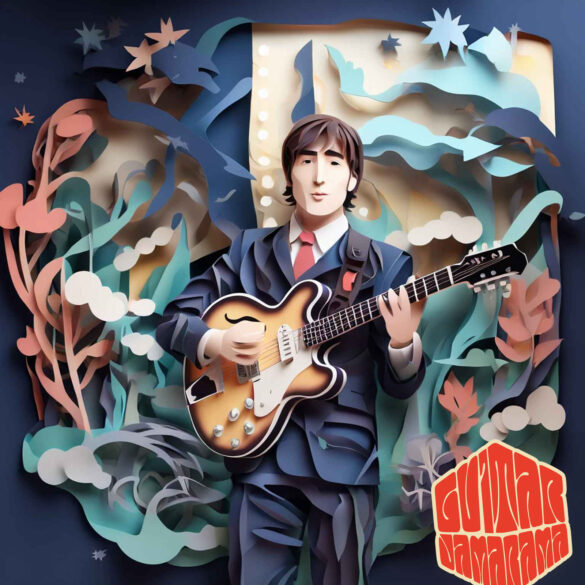John Winston Lennon, born on October 9, 1940, in Liverpool, England, was a co-founder of The Beatles, one of the most influential bands in music history.
He was more than a guitarist; he was a cultural icon, a peace advocate, and one half of the most celebrated songwriting duo in music history. With The Beatles and in his solo career, Lennon used music to voice his vision of a world where love and peace could prevail.
Rhythmic Precision
Lennon’s rhythm guitar work was a cornerstone of The Beatles’ sound and more about the feel rather than metronomic precision. His strumming was the heartbeat to The Beatles’ sound, contributing to that unique vibe that made everyone want to dance, think, and sometimes cry.
Technical Proficiency
While not known for virtuosic displays, Lennon’s technical skills were in his songwriting and his ability to craft simple, yet profound melodies with the guitar. His playing was about expression over flash, letting the emotion of the song guide his fingers.
Musical Versatility
From the pop-rock of The Beatles to experimental sounds like those in “Revolution 9”, Lennon’s versatility was in his approach to music. He wasn’t afraid to venture into new territories, blending rock with folk, psychedelia, and even avant-garde.
Improvisational Skill & Live Playing Adaptability
Lennon’s live performances, especially in his later years, showcased his ability to adapt and improvise. His playful spirit came through in how he’d sometimes change lyrics or engage in off-the-cuff banter with the audience, making each performance unique.
Compositional Ability
Where Lennon truly excelled was in his composition. His songs with The Beatles and his solo work are timeless, touching on themes of love, peace, and introspection. His ability to weave complex emotions into seemingly simple melodies is unparalleled.
Tone & Touch
Lennon’s tone was emblematic of The Beatles’ sound – warm, inviting, and instantly recognizable. His touch was about conveying feeling, whether it was the tender strum of an acoustic or the assertive jangle of an electric guitar.
Stage Presence & Communication
John’s stage presence evolved over time, from the cheeky charm of Beatlemania to the earnest, sometimes confrontational, but always engaging solo artist. He communicated through his music, his activism, and his direct, sometimes challenging, interaction with audiences.



